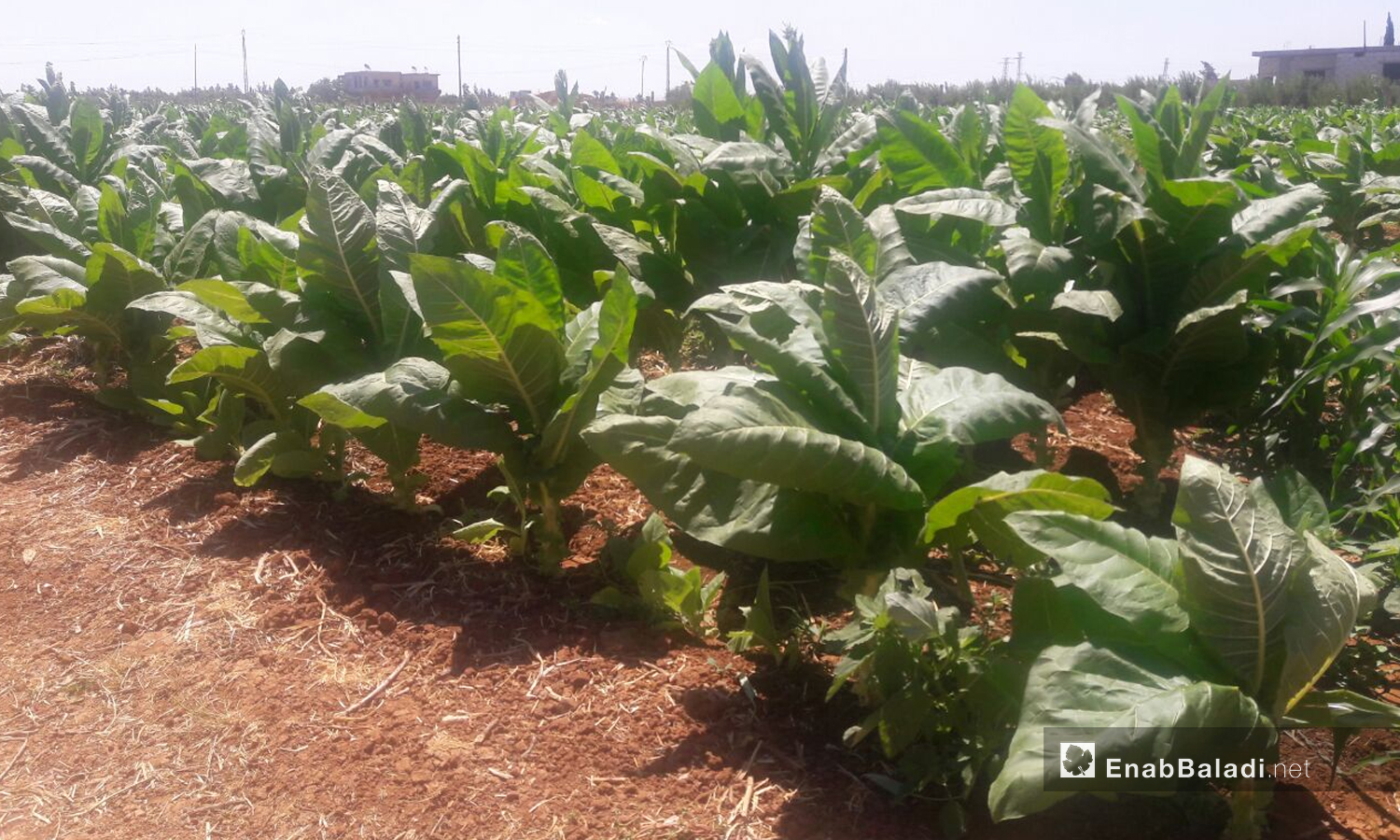



Daraa – Halim Muhammad
Yasser, a 45-year-old farmer from the southern governorate of Daraa, depends on tobacco cultivation to provide for his family.
Yasser, who withheld his last name for security reasons, told Enab Baladi that his primary motivation for growing tobacco was“ because of its price stability. The tobacco price is not affected by the local market fluctuations as happens with vegetables and fruits.” Many areas in Daraa governorate are seeing a gradual resurgence of tobacco cultivation.
Farmers had stopped growing tobacco for almost ten years for several reasons. First, this cultivation was halted by the opposition factions controlling the governorate, before the Syrian regime forces recaptured it in July 2018 under a settlement agreement.
Furthermore, the commercial roads were cut off, which created difficulties in gaining market access for tobacco products. In addition, the General Organization of Tobacco was not able to follow the crops.
Yasser wants to grow tobacco because it is one of the agricultural crops subsidized by the Syrian government. The Syrian government’s General Tobacco Corporation provides diesel at a subsidized price of 180 Syrian Pounds(SYP-0.05). The corporation encouraged Daraa residents to grow tobacco by increasing the amount of diesel, which was 50 liters per dunum each month in 2020, to increase to 100 liters per dunam in the current years. It is worth noting that the price of diesel reached 1,500 SYP (0.46 USD).
Furthermore, the corporation also promised farmers to deliver them fertilizers and pesticides during the tobacco cultivation period. However, the corporation did not provide them with superphosphate in 2020, according to Yasser.
In fact, the corporation provided farmers of Daraa with all the tobacco subsidies, except for superphosphate. However, this year, there was a delay in the provision of tobacco subsidies to farmers. The corporation should have given farmers tobacco subsidies in the early stages of tobacco cultivation, in the first half of the year.
Superphosphate is applied prior to planting as a fertilizer in the soil. Superphosphate provides calcium, phosphorus, and sulfur to promote the growth of the tobacco crop.
Tobacco planting season begins in February; first, farmers begin with planting seedlings and covering them with plastic wraps to increase heat that helps in their germination and protect them from frost waves.
After planting the tobacco seedlings, farmers work on getting rid of the grass. Then, they move to turn the soil over and spray the seedlings with pesticides and fungicides. When the tobacco plants are fully grown and the leaves ripen, farmers start to harvest them. A dunum of tobacco needs 50 kilograms of urea organic fertilizer and 25 kilograms of superphosphate.
Even though the Syrian government provides subsidies for tobacco farmers, this kind of farming remains costly.
On 1 June, the Board of Directors of the Central Agricultural Bank decided to lift the subsidy of some fertilizers for tobacco plants and sell them at cost to the farmer.
Thus, one ton of superphosphate now costs 1,112,000 SYP (347.5 USD) while one ton of urea fertilizer is 1,366,000 SYP (426 USD). The price of a ton of ammonium nitrate is 798,600 SYP (246 USD).
Farmers also have to purchase tobacco drying racks, which are quite expensive.
One drying rack costs at least 2,000,000 SYP(625 USD)in the city of Daraa. Tobacco drying racks’ prices vary according to their areas and types. However, one drying sack could be used for five seasons.
Tobacco farmers need to obtain a license from the General Tobacco Corporation. Furthermore, they need to follow its scheme and deliver specified quantities determined in the license.
The Syrian regime retook control of Daraa governorate three years ago. Yet, the corporation’s centers and warehouses are still shut down, and they are not ready to receive tobacco production from farmers. Therefore, farmers have to deliver their products to the corporation’s warehouses
The corporation receives those quantities of tobacco in Deir Ali warehouses near Damascus.
In Daraa, there was previously a center for the delivery of the crop in the cities of Tafas and Izraa. However, now the farmers are delivering their crops to the corporation in the city of Damascus, which increases the costs of transportation fees.
if you think the article contain wrong information or you have additional details Send Correction